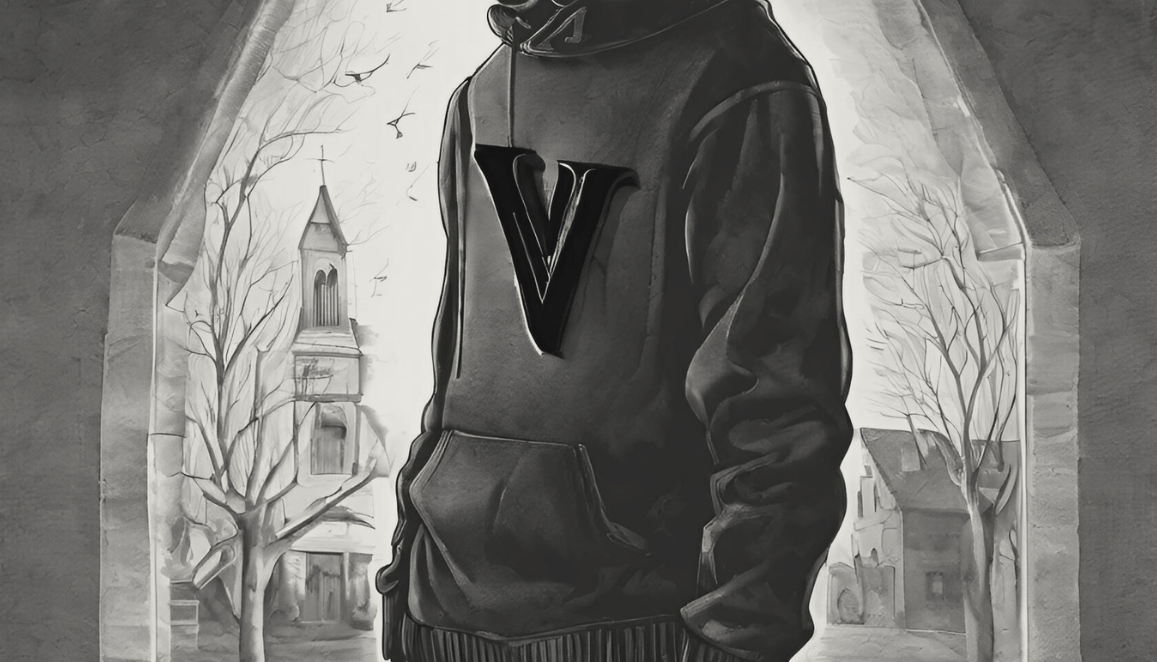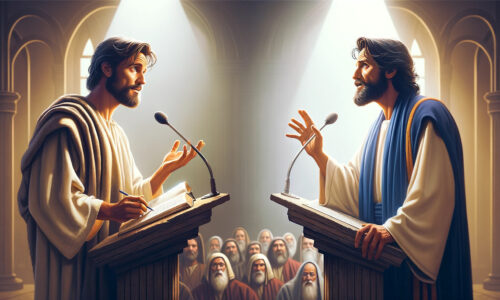
I’m a Victim
The biblical prophet Daniel was probably a eunuch, someone castrated at a young age. He was taken captive with other young men when the Babylonian kingdom moved southward in the 7th and 6th centuries B.C.
If anyone had a right to cry, ‘I’m a victim,’ it was him.
The Babylonians, like many ancient, expansionistic cultures, would take the best and the brightest and educate them for work in government. However, they did not want them womanizing, so they fixed that problem, as I already stated.
Imagine for a minute that you are a young man and know you are intelligent. You believe that you are destined to study and achieve. You are born into privilege and probably are related to royalty in some way. You have a great start, but someone abuses you. They take your sexuality, so to speak.
Beyond this, you were forced to serve the very people who took your ability to marry, procreate, have children, and enjoy what it means to be a family. What would you do?
The door to bitterness is wide open. Every day you are obligated to serve a system that took something precious from you.
Daniel had a thousand reasons to hate his life, to fan the flames of bitterness, and to be focused inwardly on very real wounds he received, both literally and figuratively. But he did not. He decided to serve others. This is almost unimaginable.
Daniel more than likely served three empires over 80+ years. He walked with kings, gave counsel, and said many hard things to leaders that needed correction. He did it with grace and boldness.
At the end of a long day, he did not return to his wife and kids, hugging and playing with his children. Because he chose not to fraternize with compromised individuals in serious ways, he probably lived a life of solitude.
We know it was his daily habit to open his windows three times a day and pray toward Jerusalem. He knew his God, and that was his refuge.
Beyond the hardships of being a eunuch, he advised kings—Nebuchadnezzar, Belteshazzar, Darius, Cyrus, and probably some other intermediary kings. However, sometimes they did not take his advice and even tried to kill him occasionally.
I can imagine Daniel’s internal conversations with himself. At low moments, maybe he was saying something like this, “I serve these kings. They ask for advice, and I give it. I fear for my life and wait for the thumbs-down execution signal. I am hated by other jealous advisors. My life is not the way I planned. I am a victim of endless, circumstantial consequences of forced leadership roles.”
In the Bible, Daniel never cried the victim card. This is astonishing.
Today we fight for victims’ rights, and we absolutely should. We need to take up the cause of the oppressed and use all our powers to stop trafficking, exploitation, employer abuse, people taking advantage of immigrants, etc. This is non-negotiable. There is never a day that this is acceptable. Also, I am not saying that an abused person should stay in an abusive situation.
The problem remains about the internal battle, however. What do we do with the inward struggles, when the war rages within about being a victim. We who are often on the outside can fight the external exploitation, but we also must fight for a God-sized victory over personal and internal battles of the weak or within ourselves.
Daniel took control of his own life. He refused to let the system that castrated him also determine his destiny.
“Daniel, eat our food. Drink our wine. Come to our parties. Take advantage of being a courtier,” they said.
“No, I have other obligations, at the moment. Thank you for thinking of me, however. I really appreciate it,” he probably said.
Really, his obligation was to return home, open his windows, and pray to the God to promised to lead him and guide him through life. That was his pattern.
Not only did he not become bitter toward those who harmed him, he served them. He gave them advice. He led that country the best way he could. This is almost mind-blowing.
How does a person escape the cycle of internalization of anger and bitterness when they are harmed by others? If there is some instruction we can gain from Daniel’s life, here are several principles.
Daniel got control of what he could, first his food and his friends. He knew if he ate and drank what others did, he would likely have to spend time with them. Consequently, he became a vegetarian. It was not just a matter of keeping kosher and being ceremonial clean. There were social relationships involved too.
Additionally, he got control of his friends. He found three others who were of the same mind who also underwent the same fate of being made eunuchs: Hanniah, Mishael, and Azariah. When we surround ourselves with people of character, we rise together to the heights for which God created us.
These choices, however, did not immunize Daniel from the inevitabilities of standing up for what was right. However, it made it easier to walk that road of suffering with others of like mind.
As much as we might be a victim of other people’s sins, we cannot let anyone control our futures. God has a destiny for us; it is our place to counsel kings and serve the very kingdom of darkness that that cut off our right to procreate.
Whatever life people have stolen from us might be the very platform for a different kind of new life. Our circumstantial context is the stage of God’s activity, however dark that stage is lit.
We have an obligation to bring light to those around us. When they see the bitterness that could be ours but instead see joy and optimism, well, that is our superpower. “People just don’t do that,” whey will say.
What we might get amid the many admirers who see our character are a few bitter and angry colleagues who think we need to wallow in the same darkness from which they refuse to leave. We cannot succumb to that road.
Longevity in ministry and happiness in life over the long-haul is the reality that perpetrators are all around us. We avoid them, stick up for the oppressed, and most of all, dominate the inward thoughts of rancor and bitterness.
Hatred rises too often. Living in fear is also no way to live.
The story of Daniel reminds me of Jesus’s words, “Greater love has no one than this: to lay down one’s life for one’s friends” John 15:13. In the face of impossible odds, that’s what Daniel did. That’s what Jesus did.
The more Daniel forgave and served, the more he was promoted. The more he engaged to help the organization that hurt him, the more he advanced in the kingdom.
What do I learn from all this? God has made me to overcome abuses, not for my own advancement, but for the success of those around me.
I’m not a victim. I’m a powerbroker.
- Engage!
- Apologetics, faith, images, Parable, Preaching, Speech figures
- April 11, 2024



